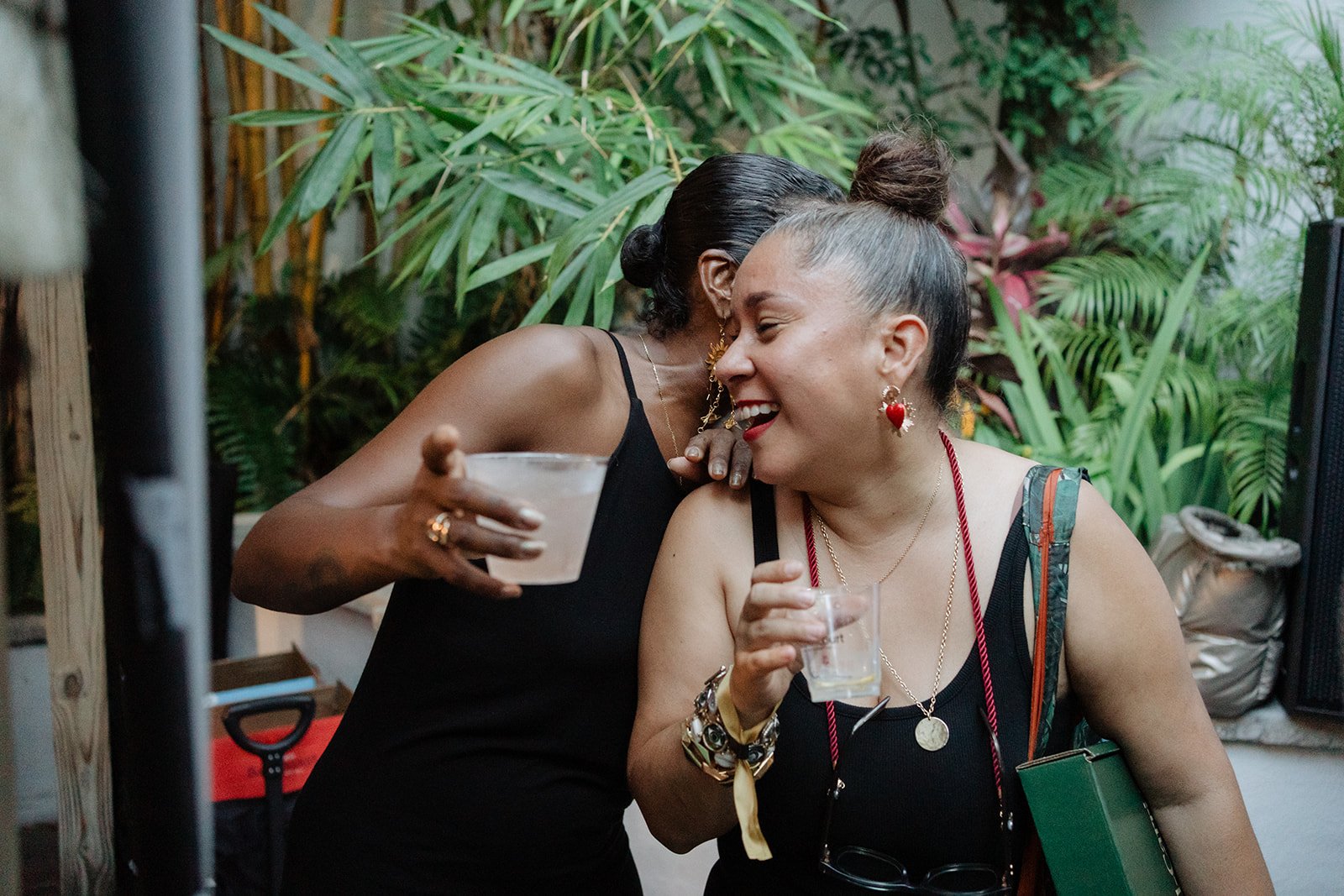Ayizan Means Sacred Earth
When we asked artist Edouard Duval-Carrié about the inspiration behind his commissioned work, he introduced us to the powerful figure of Ayizan or Ayzan from Haitian Vodou cosmology. Recognized as the first mambo, or priestess, Ayizan is known as “the mother of all initiates.”
Nadege Green, community historian and founder of Black Miami-Dade, explains that Ayizan’s name comes from the Fon people of Benin, where "ayi" means earth and "zan" means sacred—together, they translate to “sacred earth.” In both Haiti and Africa, Ayizan serves as the guardian of marketplaces and public spaces, embodying wisdom and strength. She is often called upon to cleanse spaces, protect the vulnerable, deflect the Evil Eye, and heal those in need. The palm tree is Ayizan’s sacred tree.
Gathered in Edouard’s Little Haiti studio for our Season Seven finale, he shared stories spanning cultures and continents. The conversation was lovingly moderated by Naiomy Guerrero, an art historian and fellow at the Graduate Center of City University of New York. She highlighted how the reflective materials in Edouard's work allow us to quite literally see ourselves and asked about the deities represented in his tableaus. Edouard thoughtfully replied, “To me, the Gods are the people.”
After the unveiling, DJ Kumi—alongside our friends at Barbancourt—set the perfect soundtrack for celebrating seven incredible years under the Miami sun.
Suggested reading: The Black Religion That’s Been Maligned for Centuries by Nadege Green for The Atlantic.
Aizan, 21.5 x 27.75 in., Engraving on plexiglass in artist frame (2021)
Deepest gratitude to the Haitian Cultural Arts Alliance and Barbancourt Foundation, and Alexia Vorbe, Stephanie Valdes, Jacek J. Kolasiński, and Etienne Charles. Overwhelming thanks to our dedicated team and all of our members, artists, and partners who have supported this project over time. Commissioner is the work of all of us.
Photography by Chantal Lawrie.






















































